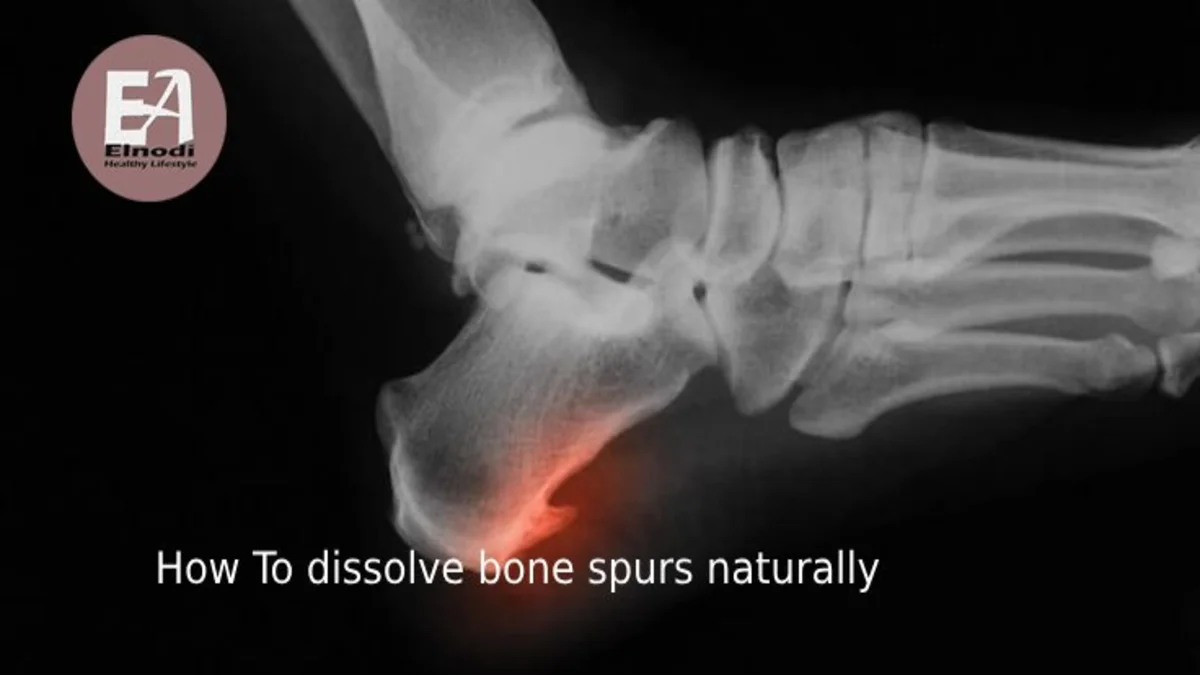Discover the optimal diet for managing Hashimoto’s disease. This comprehensive guide reviews essential foods, vitamins, and expert recommendations to support thyroid health and improve overall well-being.
The Autoimmune Protocol diet and a grain- or gluten-free diet are two eating regimens that may help lessen inflammation, contributing to Hashimoto’s thyroiditis.
An autoimmune disorder called Hashimoto’s thyroiditis causes lymphocytes—white blood cells that are a component of your immune system—to progressively destroy thyroid tissue.
At the base of the neck, the thyroid is a butterfly-shaped endocrine gland that secretes hormones that affect almost every organ system. It also regulates growth and metabolism. In time, this gland’s damage results in insufficient thyroid hormone production.
The food and lifestyle changes that are most likely to help people with Hashimoto’s thyroiditis are described in this article.
- The impact of lifestyle and the Hashimoto Diet
- Grain and gluten-free diets
- The diet is known as the autoimmune protocol
- Lactose-free diet.
- Anti-inflammatory diet
- Whole-foods diet
- Effective vitamins for Hashimoto's
- Foods to Eat
- Foods to Avoid
- Other lifestyle Recommendations
- What is Hashimoto’s Thyroiditis?
- What causes Hashimoto's Thyroiditis?
- Am I at risk of acquiring Hashimoto's thyroiditis?
- What are the symptoms of Hashimoto's Thyroiditis?
- Hashimoto's thyroiditis diagnosis
- Treatment for Hashimoto's Thyroiditis
- Complications due to Hashimoto's
- How does the thyroid produce cholesterol issues?
- Frequently asked questions
- References
The impact of lifestyle and the Hashimoto Diet
One of the most prevalent thyroid conditions in the US and other industrialized nations is Hashimoto’s thyroiditis. Even with medicine, the symptoms can still majorly impact one’s quality of life.
Since many Hashimoto patients discover that their symptoms worsen despite taking medication, research indicates that diet and lifestyle choices are crucial to treating the condition. In addition, many symptomatic individuals do not receive medicine unless their hormone levels are abnormal.
Making dietary and lifestyle changes can also lower your risk of comorbid conditions like diabetes and obesity.
Grain and gluten-free diets
Numerous studies show that compared to the general population, those with Hashimoto’s illness are more likely to have celiac disease. Because of this, specialists advise screening for celiac disease for all individuals with a Hashimoto’s disease diagnosis.
Furthermore, there is evidence to suggest that individuals with Hashimoto’s thyroiditis may benefit from a diet free of grains and gluten.
A gluten-free diet improved thyroid function and vitamin D levels while lowering thyroid antibody levels in a 6-month study of 34 women with Hashimoto’s thyroiditis when compared to a control group.
Additionally, according to studies, even those without celiac disease who suffer from autoimmune disorders such as Hashimoto’s thyroiditis would probably benefit from a gluten-free diet.
The diet is known as the autoimmune protocol
People with autoimmune illnesses are intended to follow the Autoimmune Protocol (AIP) diet. Foods including grains, dairy, nightshades, coffee, added sugar, legumes, eggs, alcohol, nuts, seeds, refined sugars, oils, and food additives are among the items that are eliminated.
The AIP diet markedly reduced levels of the inflammatory marker C-reactive protein (CRP) and improved quality of life scores in a 10-week study including 16 women with Hashimoto’s thyroiditis.
Despite the encouraging results, more extensive research with a longer period is required. Additionally, a qualified healthcare provider should prescribe and oversee this diet.
Lactose-free diet.
Lactose intolerance is extremely common in persons with Hashimoto’s thyroiditis.
If you suspect lactose intolerance, avoiding dairy products may help with digestion, thyroid function, and medication absorption.
Keep in mind that this technique may not be suitable for everyone, as some people with Hashimoto’s tolerate dairy wonderfully.
Anti-inflammatory diet
Inflammation may be the main reason behind Hashimoto’s thyroiditis. As a result, an anti-inflammatory diet high in fruits and vegetables may greatly alleviate symptoms.
A study of 218 women with Hashimoto’s thyroiditis discovered that those who consumed more fruits and vegetables had lower levels of oxidative stress, a disease that promotes chronic inflammation.
Whole-foods diet

A diet low in added sugars and highly processed foods but high in full, nutrient-dense foods may help enhance health, manage weight, and alleviate Hashimoto’s symptoms.
Whenever feasible, cook your meals at home with nutritious ingredients such as vegetables, fruits, proteins, healthy fats, and fiber-rich carbohydrates.
Effective vitamins for Hashimoto’s
Several nutrients may reduce inflammation and thyroid antibodies in persons with Hashimoto’s thyroiditis. Furthermore, persons with this illness are more prone to be lacking in specific nutrients, therefore supplementation may be recommended.
Beneficial supplements include:
It is important to note that supplementing with large amounts of iodine in the absence of an iodine deficiency may have negative consequences on persons with Hashimoto’s. Do not take high-dose iodine supplements unless prescribed by a healthcare expert.
Foods to Eat
If you have Hashimoto’s thyroiditis, a nutrient-dense diet can help alleviate your symptoms and enhance your overall health. Focus on the following foods.
- fruits
- Non-starchy veggies.
- starchy vegetables
- Healthy fats.
- Animal protein.
- Gluten-free grains.
- seeds, nuts, and nut butter.
- Beans with lentils
- dairy and nondairy alternatives (fortified with calcium and/or vitamin D)
- Spices, herbs, and condiments
- lean animal protein.
Keep in mind that some patients with Hashimoto’s thyroiditis avoid several of the items listed above, including grains and dairy. Experiment with your diet to determine which foods work best for you.
Foods to Avoid
Eliminating or reducing the foods listed below may help lessen Hashimoto’s symptoms and improve your general health:
- Added sugars and sweets
- Fast food and fried food
- Refined grains
- Highly processed foods and meats.
- Gluten-containing grains and foods.
Some cruciferous vegetables and soy products include goitrogens, which may interfere with thyroid hormone production.
However, cruciferous vegetables are very nutritious, and heating them reduces their goitrogenic action. As a result, they are unlikely to interfere with thyroid function unless consumed in exceptionally large quantities.
Some data suggest that soy also hurts thyroid function, thus many patients with Hashimoto’s disease avoid it. However, more research is required.
Although these suggestions may be beneficial to many people, it is crucial to experiment with your diet to determine the optimal technique for you.
Working with a dietician who specializes in autoimmune disorders such as Hashimoto’s thyroiditis can help you narrow down potentially troublesome foods and establish an eating regimen that will help you feel
Other lifestyle Recommendations
A study of 60 women with Hashimoto’s revealed that engaging in stress-reduction strategies helped to reduce despair and anxiety, enhance overall quality of life, and lower thyroid antibodies.
Furthermore, to ensure optimum absorption, thyroid medication should be taken on an empty stomach at least 30-60 minutes before breakfast or 3-4 hours after dinner.
Remember that when you initially start taking medicine, it may take a few weeks or longer to feel better. If your symptoms do not improve, consult with a healthcare practitioner about other possibilities.
Because Hashimoto’s symptoms can have a substantial impact on your quality of life and mental health, you must choose a trustworthy healthcare team. This may take some time, but it is necessary to receive the proper treatment.
What is Hashimoto’s Thyroiditis?
Hashimoto’s thyroiditis is an autoimmune disease in which cells in the body assault the thyroid. People with the illness may have signs of an underactive thyroid, such as fatigue and constipation.
Hashimoto’s thyroiditis (also known as Hashimoto’s disease) impairs thyroid function. It is also known as chronic autoimmune lymphocytic thyroiditis. In the United States, Hashimoto is the most frequent cause of hypothyroidism (underactive thyroid).
Your thyroid gland produces hormones that govern metabolism, body temperature, muscle strength, and a variety of other bodily activities.
What causes Hashimoto’s Thyroiditis?
Hashimoto’s thyroiditis is an autoimmune disease. The syndrome leads white blood cells and antibodies to wrongly assault thyroid cells. Doctors are unsure why this occurs, however, some scientists suspect genetic factors may be involved.
Am I at risk of acquiring Hashimoto’s thyroiditis?
The cause of Hashimoto’s thyroiditis is unknown. Several risk factors have been found for the condition. It is seven times more common in women than in men, particularly in those who have been pregnant. Your risk may be higher if you have a family history of autoimmune illnesses, including:
- Graves’ disease
- Type 1 diabetes.
- lupus
- Sjögren’s Syndrome
- Rheumatoid arthritis.
- vitiligo
- Addison’s disease.
What are the symptoms of Hashimoto’s Thyroiditis?
The symptoms of Hashimoto’s are not exclusive to the condition. Instead, it produces signs of an underactive thyroid. Signs that your thyroid isn’t performing properly are:
- constipation
- dry, pale skin
- hoarse voice
- high cholesterol
- depression
- lower body muscle weakness
- fatigue
- feeling sluggish
- cold intolerance
- thinning hair
- irregular or heavy periods
- problems with fertility
You may have Hashimoto’s for many years before developing symptoms. The condition can take a long time to create apparent thyroid damage.
Some patients with this illness develop enlarged thyroids. This is known as a goiter, and it can cause swelling at the front of your neck. A goiter rarely causes pain, however it can be painful when touched. However, it may make swallowing difficult or leave your throat feeling stuffed.
Hashimoto’s thyroiditis diagnosis
If you have underactive thyroid symptoms, your doctor may suspect you of having this condition. If so, they’ll evaluate your thyroid-stimulating hormone (TSH) levels with a blood test. This common test is one of the most effective ways to screen for Hashimoto’s. TSH hormone levels are elevated when thyroid activity is low because the body is working hard to stimulate the thyroid gland into producing more thyroid hormones.
Blood tests may be used by your doctor to assess your levels of:
- other thyroid hormones
- antibodies
- cholesterol
Treatment for Hashimoto’s Thyroiditis
Most persons with Hashimoto’s require treatment. If your thyroid is in good working order, your doctor may keep an eye out for changes.
If your thyroid isn’t producing enough hormones, you should take medicine. Levothyroxine is a synthetic hormone that substitutes the deficient thyroid hormone thyroxine (T4). It produces almost no negative effects. If you need this medication, you’ll probably be taking it for the rest of your life.
Regular usage of levothyroxine can help you restore your thyroid hormone levels to normal. When this occurs, your symptoms normally resolve. However, you will most likely need to have regular hormone checks. This allows your doctor to alter your dosage as needed.
Complications due to Hashimoto’s
If left untreated, Hashimoto’s thyroiditis can lead to consequences, some of which are serious. These may include:
- Heart issues, including heart failure.
- anemia
- bewilderment, loss of consciousness.
- High cholesterol.
- diminished libido
- depression
Hashimoto’s can potentially cause complications during pregnancy. According to a recent study, mothers with this illness are more likely to have babies with heart, brain, and renal problems.
To reduce these difficulties, women with thyroid disorders should be monitored throughout their pregnancy. The American College of Obstetrics and Gynecology does not suggest routine thyroid monitoring during pregnancy for women who do not have any known thyroid issues.
How does the thyroid produce cholesterol issues?
Your body needs thyroid hormones to produce cholesterol and eliminate unnecessary cholesterol. When thyroid hormone levels are low (hypothyroidism), your body’s ability to break down and eliminate LDL cholesterol is reduced. LDL cholesterol can then accumulate in your bloodstream.
Thyroid hormone levels may not need to be extremely low to increase cholesterol. Even persons with mildly reduced thyroid levels, known as subclinical hypothyroidism, may have higher than usual LDL cholesterol. A 2012 study discovered that elevated TSH levels can directly boost cholesterol levels, even if thyroid hormone levels are normal.
Hyperthyroidism has the opposite effect on cholesterol. It reduces cholesterol levels to unusually low levels.
Frequently asked questions
References
https://www.ncbi.nlm.nih.gov/books/NBK459262
https://www.ncbi.nlm.nih.gov/pmc/articles/PMC9101513
https://www.ncbi.nlm.nih.gov/pmc/articles/PMC9312543
https://www.ncbi.nlm.nih.gov/pmc/articles/PMC9331471
https://www.ncbi.nlm.nih.gov/pmc/articles/PMC6176279
https://www.ncbi.nlm.nih.gov/pmc/articles/PMC6926951
https://www.ncbi.nlm.nih.gov/books/NBK539808





